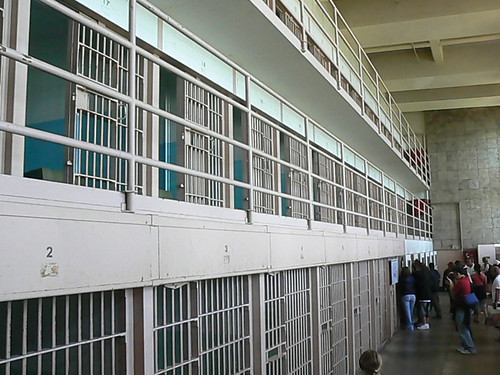There is something drastically wrong with America’s prison system. It can be hard to put a finger on exactly what is wrong, especially when you read the differing opinions of so-called experts in the field. No matter the expert or the field that person represents, most agree on one thing: Things need to change. Here are ten facts that you may not know about the prisons in this country and the system that runs them:
1.Population
In 2009, there were over seven million people incarcerated or under court supervision; a number that outranks the population of the entire state of Alabama by about three million. Even though jails and prisons are the victims of budgetary cutbacks, America is still able to supervise enough people to fill a State.
2.Count
According to the Bureau of Justice Statistics, the prison population in America tripled in 20 years’ time. In 1987, there were 585,084 citizens incarcerated. At the end of 2007, that number climbed to 1,596,127.
3.Recidivism
If you release ten prisoners, four will return to an institution within three years. This statistic should open people’s eyes and make them question the idea of rehabilitation. If the goal of our prison system is to turn criminals into productive members of society, why are nearly half returning to prison?
4.Eight States
When you consider population, nine states top the nation with regards to the number of persons incarcerated. Those states are Idaho, Minnesota, Indiana, Ohio, Massachusetts, Rhode Island, Texas, Louisiana and Georgia. Idaho ranks number one, seeing one in every 18 adults between the ages of 20 and 34 behind bars.
5.African-Americans
Stop and give this fact a moment’s thought: Of the adults incarcerated between the ages of 20 and 34, one in nine are African-American men. This means that for eight African-American men that you see on the street, one is in prison.
6.World View
The United States of America has more people in prison per 100,000 people than any other country in the world. In the U.S., 734 adults are locked up for every 100,000 that remain free. In comparison, approximately 100 adults for every 100,000 in Greece are incarcerated.
7.Costs
Do you know the answer to this question: Is it more expensive to monitor a parolee or house a prisoner? If you don’t, you aren’t alone. It is, in fact, more expensive to house an inmate, per day. While it costs taxpayers just under $80.00 per day to house an inmate, it costs less than $7.50 per day to monitor a parolee.
8.Death Row
You’ve undoubtedly heard stories of people languishing on death row for years even though they’ve asked to be put to death quickly. If you’re wondering why, so are we. It may surprise you to find out that in New Jersey, for example, it costs an average of $11 million to house a single prisoner on death row throughout their length of stay.
9.Running a Prison
Since we’re speaking of costs, consider this: In 1987, state prisons had an annual operating cost of just under $11 billion. 20 years later, in 2007, state prisons had an annual operating cost of $44.06 billion dollars; a 315 percent increase.
10.Education
In America, money spent on education has increased by 33 percent over the past 20 years. The cost of building and operating prisons, on the other hand, has increased by 570 percent. In this country, six times the amount of money spent on teaching our children is spent on incarcerating our adults.
While many people will point to an increase in crime as a reason for an increased prison population, this is simply not the case; violent crimes and the like have actually decreased. This, then, raises the question: What is wrong with the prison system in America? Sadly, that is a question that we may never have an answer to.
– Chantel Leck writes articles for education blogs. If you’re interested in the criminal justice system, you might consider getting a degree in the field. Several schools offer online criminal justice degrees that make it easier for working professionals to work and go to school at the same time, for example University of Cincinnati’s masters in criminal justice online.



